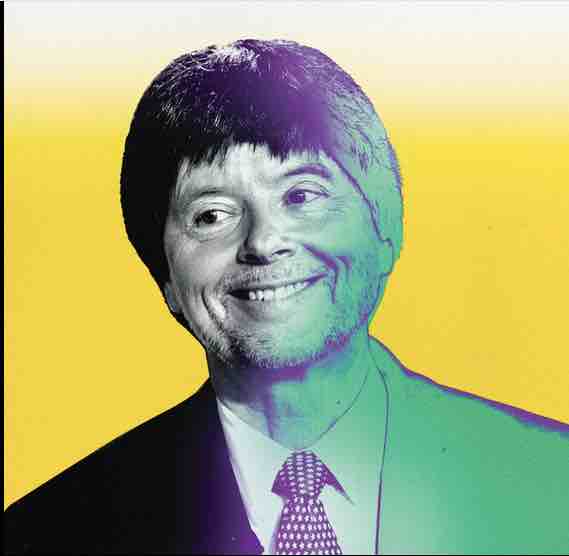It cannot be said that Ken Burns is an unambitious filmmaker. He is, after all, a director who has spent 40 years making documentaries about truly foundational American subjects: the Civil War, Thomas Jefferson, jazz, the Roosevelts, baseball, the Brooklyn Bridge, the Vietnam War, country music. The list goes on. (And on. Think of an iconic American historical figure or event, and there’s a half-decent chance that Burns, 67, has made or is currently making a documentary about it.) But Burns’s greatest audacity might simply be his belief that the stories he tells about those biggies — and their attendant ambiguities, hopes and disappointments — can resonate with all Americans, across political or ideological divides. “It’s important for me to speak to everybody,” says Burns, whose documentary about another biggie, “Hemingway” (directed with Lynn Novick), premieres April 5 on PBS, “and to be able to try to remind us that we have things in common.”
In this moment, when there has been such a fracturing of any common American identity, has the project that you’re engaged in — of exploring fundamental national stories that might speak to all of us — become quixotic? That is really hard to answer. There was never a “project.” It was never like, Let’s do this. I’ve made films for more than 40 years on the U.S., but I’ve also made films11 In addition to the films already mentioned, Burns has made documentaries about the national parks, America in World War II, Mark Twain, Jack Johnson, Lewis and Clark and the Statue of Liberty, among other subjects. about “us.” All of the intimacy of that two-letter lowercase plural pronoun and all the majesty and contradiction of the U.S. But the thing that I’ve learned is that there’s no “them.” This is what everybody does: make a distinction about “them.” It’s just us.




